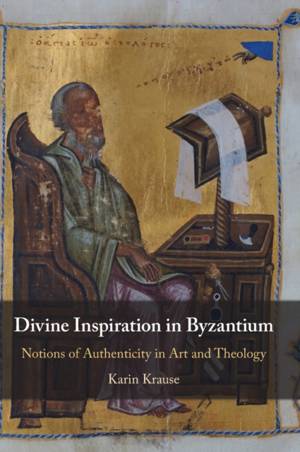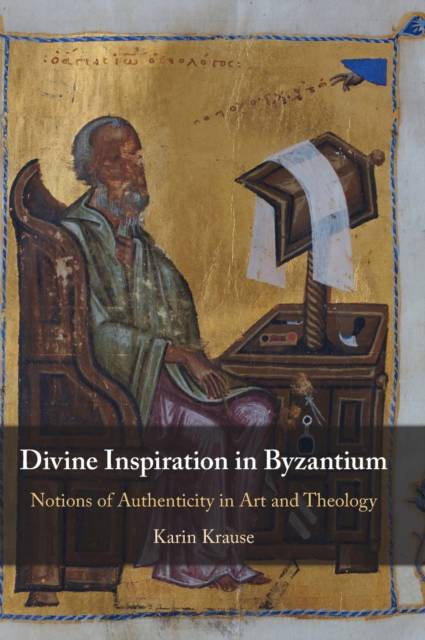
- Afhalen na 1 uur in een winkel met voorraad
- Gratis thuislevering in België vanaf € 30
- Ruim aanbod met 7 miljoen producten
- Afhalen na 1 uur in een winkel met voorraad
- Gratis thuislevering in België vanaf € 30
- Ruim aanbod met 7 miljoen producten
Zoeken
Divine Inspiration in Byzantium
Notions of Authenticity in Art and Theology
Karin Krause
Hardcover | Engels
€ 183,45
+ 366 punten
Omschrijving
In this volume, Karin Krause examines conceptions of divine inspiration and authenticity in the religious literature and visual arts of Byzantium. During antiquity and the medieval era, "inspiration" encompassed a range of ideas regarding the divine contribution to the creation of holy texts, icons, and other material objects by human beings. Krause traces the origins of the notion of divine inspiration in the Jewish and polytheistic cultures of the ancient Mediterranean and Near Eastern worlds and their reception in Byzantine religious culture. Exploring how conceptions of authenticity are employed in Eastern Orthodox Christianity to claim religious authority, she analyzes texts in a range of genres, as well as images in different media, including manuscript illumination, icons, and mosaics. Her interdisciplinary study demonstrates the pivotal role that claims to the divine inspiration of religious literature and art played in the construction of Byzantine cultural identity.
Specificaties
Betrokkenen
- Auteur(s):
- Uitgeverij:
Inhoud
- Aantal bladzijden:
- 492
- Taal:
- Engels
Eigenschappen
- Productcode (EAN):
- 9781108830997
- Verschijningsdatum:
- 9/06/2022
- Uitvoering:
- Hardcover
- Formaat:
- Genaaid
- Afmetingen:
- 178 mm x 254 mm
- Gewicht:
- 1338 g

Alleen bij Standaard Boekhandel
+ 366 punten op je klantenkaart van Standaard Boekhandel
Beoordelingen
We publiceren alleen reviews die voldoen aan de voorwaarden voor reviews. Bekijk onze voorwaarden voor reviews.







